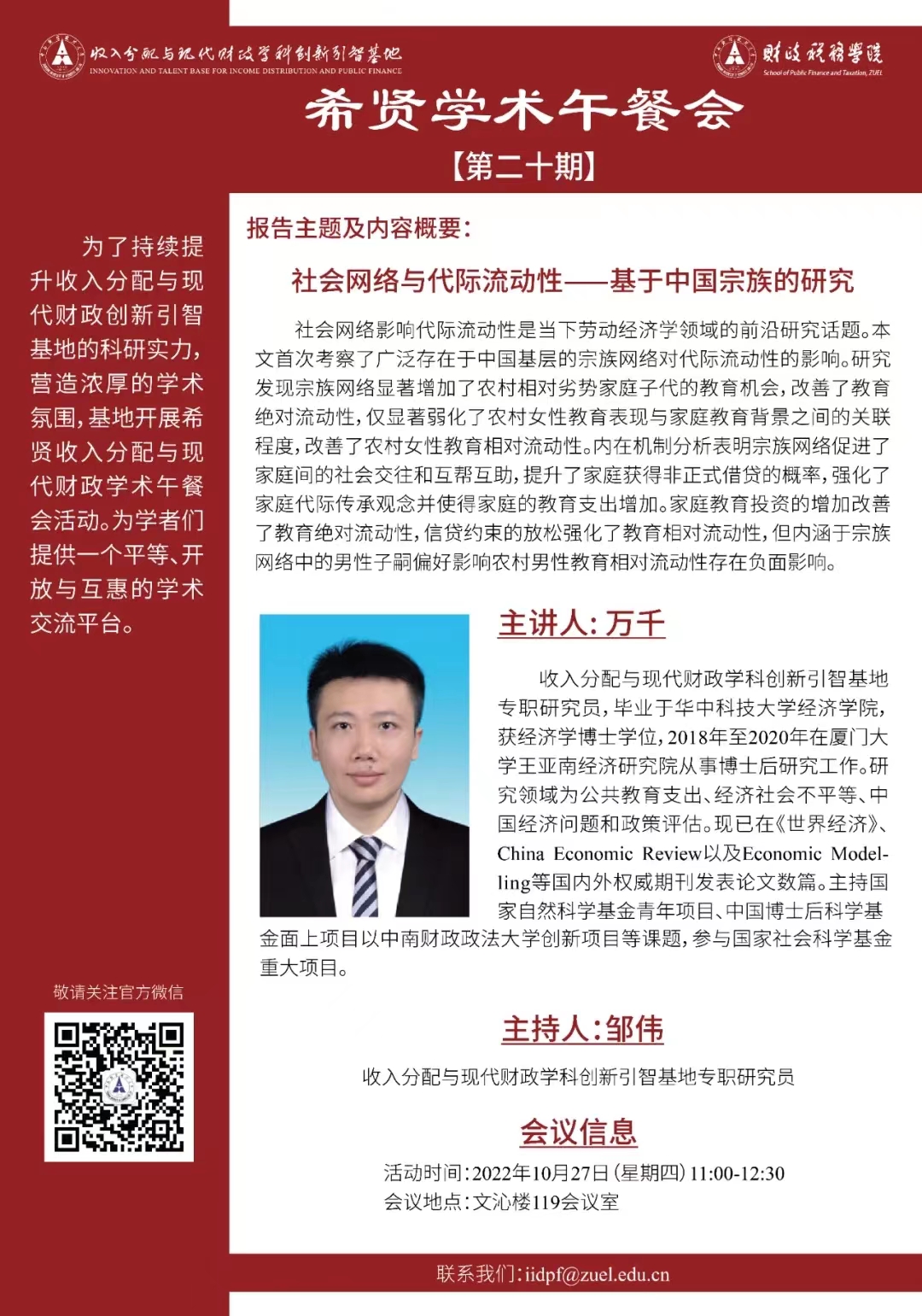
Title: Social Networks and Intergenerational Mobility - A Study Based on Chinese Clans
Time: 11:00am-12:30pm, October 27, 2022 (Thursday)
Location: Conference Room 119, Wenqin Building
Moderator: Dr. Zou Wei
Keynote speaker: Associate Professor Wan Qian
Dr. Wan is a full-time researcher at IIDPF. She received her PhD in economics from the School of Economics, Huazhong University of Science and Technology, and is a postdoctoral researcher at the Wang Yanan Institute of Economic Research, Xiamen University from 2018 to 2020. Her research areas include public education spending, economic and social inequality, and economic issues and policy evaluation in China. She has published several articles in authoritative journals such as The Journal of World Economy, China Economic Review, and Economic Modelling. Dr. Wan is moderating the Youth Program of the National Natural Science Foundation of China, the Postdoctoral Science Foundation of China, the Innovation Program of ZUEL, and participates in major projects of the National Social Science Foundation of China.
Abstract:
The influence of social networks on intergenerational mobility is a frontier research topic in the field of labor economics nowadays. This paper is the first to examine the impact of clan networks, which are widespread at the grassroots level in China, on intergenerational mobility. It is found that clan networks significantly increase the educational opportunities of offspring from relatively disadvantaged rural families, improving absolute educational mobility, and only significantly weaken the correlation between rural female educational performance and family educational background, improving relative educational mobility of rural females. The analysis of intrinsic mechanisms suggests that clan networks promote social interactions and mutual help among families, increase the probability of families to obtain informal borrowing, strengthen the concept of intergenerational family inheritance and increase family education expenditures. The increase in household investment in education improves absolute educational mobility and the relaxation of credit constraints strengthens relative educational mobility, but male offspring preferences embedded in clan networks negatively affect rural male relative educational mobility.
